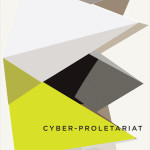
“There is a tendency to fetishize the fetish”: An Interview with Karl Reitter
Reitter’s insistence that Capital is not principally a text about the “autonomous” subject of capital, but the specific social relations that underlie capitalism and their constitutive struggles, provides an important challenge. Class struggle, in this reading, is not simply additive to theories of value or crisis; it indicates the historical movement which opens up to the possibility of liberation, a movement which is irreducible to any determinism.
 Viewpoint Magazine
Viewpoint Magazine







